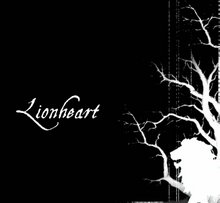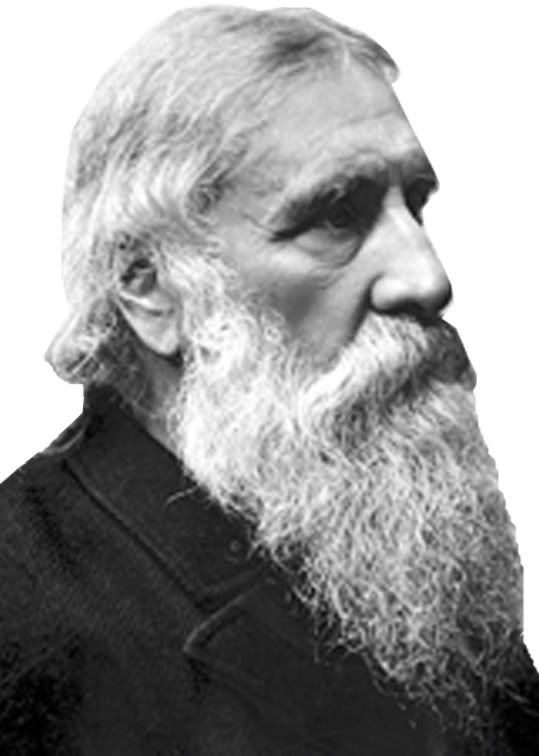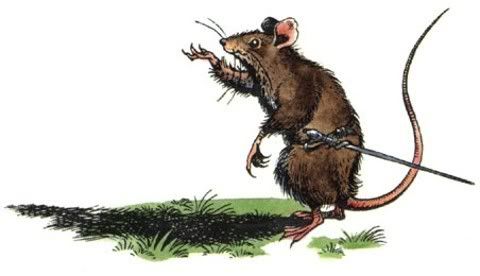Thursday, February 26, 2009
Random Thought of Thursday
One of the best parts about being a Christian is that you get to be a missionary
Saturday, February 21, 2009
Wednesday, February 11, 2009
Monday, February 9, 2009
The Thread - Lessons from בראשית
God is alive. The creator of the universe, the all-knowing/all-powerful/always-present God, the One who’s Name is above all names, the untamed Lion, is living and active in our lives today. This is the God that is so full of existence that He can give existence away, can cause things to be, breathe life into the dust. He is truly beyond any description. You cannot have a good description of anything so vague. He is a God that cannot be proved but Who’s evidence is everywhere in our everyday lives. God is alive and God is good.
In response to God being God, man is man, and to be man is to be in sin. Mankind is dark. Genesis shows us this in the origins of sin (aka the “Fall of Man”) in chapter 3, “And when the woman saw that the tree was good for food, and that it was pleasant to the eyes, and a tree to be desired to make one wise, she took of the fruit thereof, and did eat, and gave also unto her husband with her; and he did eat.” (KJV 3:6). Chapter 4 (the first recorded murder), “…and it came to pass, when they were in the field, that Cain rose up against Abel his brother, and slew him.” (4:8) and the destruction of Sodom and Gomorrah in chapter 19, “And the men said unto Lot, Hast thou here any besides? Son in law, and thy sons, and thy daughters, and whatsoever thou hast in the city, bring them out of this place: For we will destroy this place, because the cry of them is waxen great before the face of the LORD; and the LORD hath sent us to destroy it.” (19:12-13). Mankind became so evil that God regretted even creating human beings, “And God saw that the wickedness of man was great in the earth, and that every imagination of the thoughts of his heart was only evil continually. And it repented the LORD that he had made man on the earth, and it grieved him at his heart. And the LORD said, I will destroy man whom I have created from the face of the earth; both man, and beast, and the creeping thing, and the fowls of the air; for it repenteth me that I have made them.” (6:5-7). It is apparent from Genesis that man is in need of a savior.
However God, being who He is, is at work behind all that is going on. It isn’t as apparent when you focus on individual chapters. In fact God seems crazy in some parts of the story, but when you take a step back and look at Genesis as a whole, it’s clear that God was present the whole time and He knew what He was doing. The Call of Abraham in Genesis 12 comes right after the Tower of Babel in chapter 11 to contrast man’s way with God’s way. The tower symbolizes all of the proud human attempts to attain salvation or heaven by their own strength. The story shows how we try to use our own skill and reason to create our own heaven. To this day we haven’t stopped building towers. All human towers come crashing down sooner or later. We try to reach the sky but end up doing just the opposite. Our ways are folly but the Divine’s are true. The Messiah is the perfect example. Think of how ridiculous the call of Abraham seems to human eyes. Yet that is God’s battle plan against evil-to pick one man, human just like the rest of us, and send him wandering through the wilderness with nothing but a promise. This is the beginning of the miracle known as the Jewish people. Their survival, transformation, and accomplishments through persecution, slavery, and genocide violate every known law of history and sociology.
Consider just one incident in Joseph’s story (Genesis 37-51). If one Egyptian tailor had not messed up on the thread of Joseph’s cloak, it would not have come apart in the hands of Potifer’s wife, who was then able to wrongly accuse Joseph of attempted rape and get him imprisoned, where he met Pharaoh’s butler and baker and interpreted their dreams, which would later bring him to Pharaoh to interpret his dream and save Egypt from famine. The grain, from which Joseph saved by prophesizing about saved his family who had sold him into slavery, when they became angry when he foretold their coming to Egypt. Generations later Egypt has numerous healthy slaves; awaiting Moses’ liberation, which would eventually bring forth many years of wandering, oppression, and King David who’s direct descendant would be a Jewish, son of a carpenter named Jesus. Consequently, we owe our salvation to a thread. God has a plan and is working throughout human history.
“And we know that all things work together for good to them that love God, to them who are the called according to his purpose” (Romans 8:28). Providence is the obvious lesson from the long story of Joseph that can be applied to my life. Joseph explains it to his brothers in 50:20, “But as for you, ye thought evil against me; but God meant it unto good, to bring to pass, as it is this day, to save much people alive.” God writes straight with crooked lines. He used Satan, Judas, Pilate, and Caiaphas to crucify Christ and redeem the world. God has nothing but flawed instruments to work with and yet his symphonies are beyond anything we have ever conceived. God uses the weak, stupid, sinful, and flawed. Abraham, Isaac, Jacob, etc.-every one of them a spiritual failure and yet what makes them heroes is not their “great deeds” or their strength but their faith in the Almighty. Christ even continued to do the same with his disciples. They let God be God and had faith. Abraham believed that God would even bring Isaac back from the dead in Genesis 22.
A common misunderstanding about God in the Old Testament is that he is only a God of wrath. God is indeed a God of justice and punishment, but love is his motivation behind it all. Love is just as evident throughout Genesis as it is in the Gospel of John. We see the faith that Abraham has in his Creator, but we also see the faith the Creator has in His Abraham. The six days of creation are as if they were sung with love, like the Great Lion singing Narnia into existence. We are shown the love and care that went into creating those six days through six words, ”…God saw that is was good.”
Genesis ends with the chosen people in slavery, but it also ends with hope. No book is more severe and no book is more hopeful than the Bible, from Genesis on. God remains true. Genesis destroys our illusion of pride, if we let it. It is completely bountiful in Love Himself. You cannot read it without being changed, if you let it interpret you before you interpret it.
In response to God being God, man is man, and to be man is to be in sin. Mankind is dark. Genesis shows us this in the origins of sin (aka the “Fall of Man”) in chapter 3, “And when the woman saw that the tree was good for food, and that it was pleasant to the eyes, and a tree to be desired to make one wise, she took of the fruit thereof, and did eat, and gave also unto her husband with her; and he did eat.” (KJV 3:6). Chapter 4 (the first recorded murder), “…and it came to pass, when they were in the field, that Cain rose up against Abel his brother, and slew him.” (4:8) and the destruction of Sodom and Gomorrah in chapter 19, “And the men said unto Lot, Hast thou here any besides? Son in law, and thy sons, and thy daughters, and whatsoever thou hast in the city, bring them out of this place: For we will destroy this place, because the cry of them is waxen great before the face of the LORD; and the LORD hath sent us to destroy it.” (19:12-13). Mankind became so evil that God regretted even creating human beings, “And God saw that the wickedness of man was great in the earth, and that every imagination of the thoughts of his heart was only evil continually. And it repented the LORD that he had made man on the earth, and it grieved him at his heart. And the LORD said, I will destroy man whom I have created from the face of the earth; both man, and beast, and the creeping thing, and the fowls of the air; for it repenteth me that I have made them.” (6:5-7). It is apparent from Genesis that man is in need of a savior.
However God, being who He is, is at work behind all that is going on. It isn’t as apparent when you focus on individual chapters. In fact God seems crazy in some parts of the story, but when you take a step back and look at Genesis as a whole, it’s clear that God was present the whole time and He knew what He was doing. The Call of Abraham in Genesis 12 comes right after the Tower of Babel in chapter 11 to contrast man’s way with God’s way. The tower symbolizes all of the proud human attempts to attain salvation or heaven by their own strength. The story shows how we try to use our own skill and reason to create our own heaven. To this day we haven’t stopped building towers. All human towers come crashing down sooner or later. We try to reach the sky but end up doing just the opposite. Our ways are folly but the Divine’s are true. The Messiah is the perfect example. Think of how ridiculous the call of Abraham seems to human eyes. Yet that is God’s battle plan against evil-to pick one man, human just like the rest of us, and send him wandering through the wilderness with nothing but a promise. This is the beginning of the miracle known as the Jewish people. Their survival, transformation, and accomplishments through persecution, slavery, and genocide violate every known law of history and sociology.
Consider just one incident in Joseph’s story (Genesis 37-51). If one Egyptian tailor had not messed up on the thread of Joseph’s cloak, it would not have come apart in the hands of Potifer’s wife, who was then able to wrongly accuse Joseph of attempted rape and get him imprisoned, where he met Pharaoh’s butler and baker and interpreted their dreams, which would later bring him to Pharaoh to interpret his dream and save Egypt from famine. The grain, from which Joseph saved by prophesizing about saved his family who had sold him into slavery, when they became angry when he foretold their coming to Egypt. Generations later Egypt has numerous healthy slaves; awaiting Moses’ liberation, which would eventually bring forth many years of wandering, oppression, and King David who’s direct descendant would be a Jewish, son of a carpenter named Jesus. Consequently, we owe our salvation to a thread. God has a plan and is working throughout human history.
“And we know that all things work together for good to them that love God, to them who are the called according to his purpose” (Romans 8:28). Providence is the obvious lesson from the long story of Joseph that can be applied to my life. Joseph explains it to his brothers in 50:20, “But as for you, ye thought evil against me; but God meant it unto good, to bring to pass, as it is this day, to save much people alive.” God writes straight with crooked lines. He used Satan, Judas, Pilate, and Caiaphas to crucify Christ and redeem the world. God has nothing but flawed instruments to work with and yet his symphonies are beyond anything we have ever conceived. God uses the weak, stupid, sinful, and flawed. Abraham, Isaac, Jacob, etc.-every one of them a spiritual failure and yet what makes them heroes is not their “great deeds” or their strength but their faith in the Almighty. Christ even continued to do the same with his disciples. They let God be God and had faith. Abraham believed that God would even bring Isaac back from the dead in Genesis 22.
A common misunderstanding about God in the Old Testament is that he is only a God of wrath. God is indeed a God of justice and punishment, but love is his motivation behind it all. Love is just as evident throughout Genesis as it is in the Gospel of John. We see the faith that Abraham has in his Creator, but we also see the faith the Creator has in His Abraham. The six days of creation are as if they were sung with love, like the Great Lion singing Narnia into existence. We are shown the love and care that went into creating those six days through six words, ”…God saw that is was good.”
Genesis ends with the chosen people in slavery, but it also ends with hope. No book is more severe and no book is more hopeful than the Bible, from Genesis on. God remains true. Genesis destroys our illusion of pride, if we let it. It is completely bountiful in Love Himself. You cannot read it without being changed, if you let it interpret you before you interpret it.
Sunday, February 8, 2009
I...
really hate this time of year. Valentines day brings out the worst in me...and the movies suck too.
Saturday, February 7, 2009
Thursday, February 5, 2009
From My Train Ride...

I’ve been on this train for the past thirteen hours and this is the first time that I’m actually alone. We’re about three hours away from Oregon and about sixteen hours away from Portland, my home. It’s been a long time since I’ve been to Oregon. I left early on in the Summer to come down to California to spend some time with friends of our family and to start to move my things. There are many things that I don’t miss, like the constant rain. However, there are many things that I do miss, like my family and friends. I’ve met many wonderful people down here at Biola and made friends with them but I miss a lot of my friends back home. As I’m thinking of this I’m also thinking of Paul and how much he must have missed his friends. It seems like Paul was always either on the move or in prison and I can’t imagine how lonely he must have gotten at times. I’m sure he was comforted by many people (as well as the holy spirit) but with all that traveling, you tend to miss the people who matter most to you.
For the past two to three years I’ve thought a lot about my future and what I should do. God’s always had a funny way of revealing His plan for me. In the past it’s always started out as an idea and then through a series of events became more and more clear about what He wants me to do. Coming to Biola was a big one. I thought about Biola when I was in second grade. I had a teacher that is an alumni which sparked my interest. As I got older I still was interested in Biola but didn’t know what I wanted to do. It wasn’t until my sophomore year when I decided that I wanted to do something in film because of a class that I got randomly put in to. Shortly after that I found out about Biola’s CMA department and three years later, here I am.
Now, God is still revealing to me what he wants me to do in the future. I want to do missions work in Western Europe. This may seem like a random thing that I‘m talking about, but it has a point. If I were to move to Western Europe to do missions work I would be traveling all the time, working with different churches or groups…just like Paul. Philippians is meaningful to me because I want to travel as Paul did someday. And this book gives me an idea about the loneliness I may face.
I’m really enjoying this train ride. It’s over thirty hours long but it’s been beautiful. I woke up from a nap early on in the day to find that we were riding right along the coast. We’ve gone through mountains, went through the desert at sunset, and the stars are everywhere. I’ve done a lot of looking out the window while listening to music. I’ve been reading from CS Lewis’s The Four Loves mainly the part about friendship. I agree with Lewis when he talks about how strange friendship really is because it’s totally not necessary to live. Friendship (philia, φιλια) is a strong bond existing between people who share a common interest or activity. Lewis explicitly says that his definition of friendship is narrower than mere companionship: friendship in his sense only exists if there is something for the friendship to be "about". He calls Companionship a matrix for friendship, as friendship can rise in the context of both. Friendship is the least natural of loves, states Lewis; i.e., it is not biologically necessary to progeny like either affection (e.g., rearing a child), eros (e.g., creating a child), or charity (e.g., providing for a child). It has the least association with impulse or emotion. In spite of these characteristics, it was the belief of the ancients, (and Lewis himself), that it was the most admirable of loves because it looked not at the beloved (like eros), but towards that "about"--that thing because of which the relationship was formed. This freed the participants in this friendship from self-consciousness. Because the more they were looking towards something beyond or above themselves, the more those who were looking towards that thing with them were welcomed with the same sincerity, which freed the relationship from jealousy. And although the love may not be biologically necessary, it has, argued Lewis, civilization value. The thing beyond or above themselves may be of monumental importance to society. But without the benefit of friendship to blunt the loneliness of "being the only person who sees this", or the idea that two heads are better than one, many advances in society may never have been embarked upon. The relationship is by its nature selective, and therefore, exclusive. This characteristic is not detrimental per se, but the idea or goal towards which friends strive need not be altruistic. The innocuous ideas may simply be the cause of pseudo-aristocracies that ignore the legitimate cries of those outside their group; the malefic ones may be quite worse.
I've loved the time to relax and think about whatever God put on my mind. Friendship was the big topic that I was thinking about because I was going home to see my friends but I was also missing my new friends at Biola. I just liked that there was nothing I had to do and there was nobody around and how beautiful the train ride has been. I don’t know if there’s anything that I would’ve done differently. This was the first time I’ve ever done this and haven’t got distracted. I do this kind of thing every once in awhile and I know I’ll probably do it again. I enjoy being alone (not as much as I enjoy being around people) it’s a different kind of experience. There are so many times when I don’t really pay attention to what’s going on around me because I’ve got so much going on. It’s times like these when I can really just listen.
Subscribe to:
Comments (Atom)



















